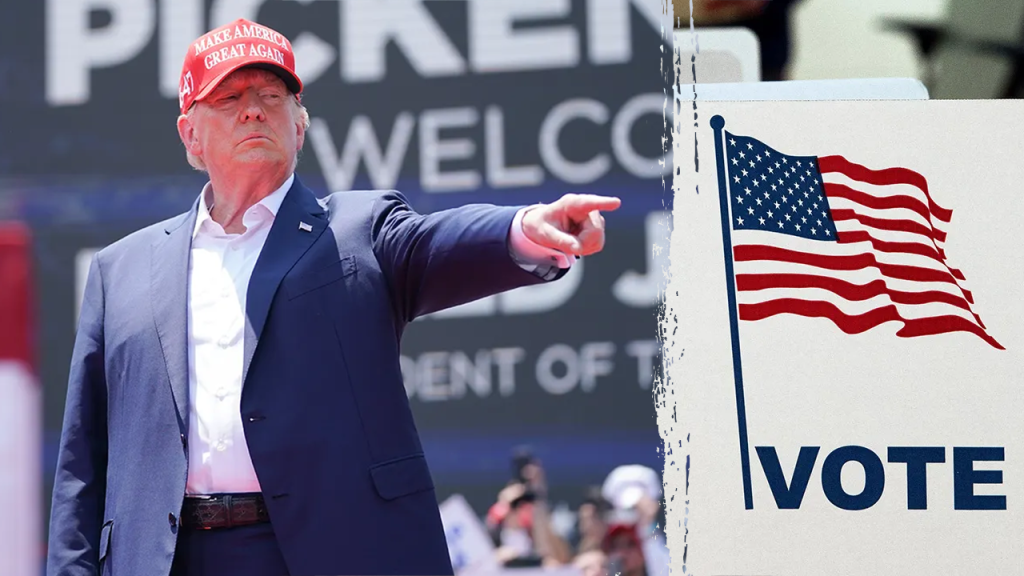A federal court ruling has blocked a key section of President Donald Trump’s executive order aiming to enhance election integrity by requiring proof of citizenship for voter registration. The decision was made by Judge Colleen Kollar-Kotelly of the U.S. District Court for the District of Columbia, who stated that Trump did not possess the constitutional authority to issue such mandates independently. The development occurs in light of a Gallup poll revealing substantial public support for voter identification laws.
| Article Subheadings |
|---|
| 1) Public Support for Voter ID Laws |
| 2) Legal Justifications for the Ruling |
| 3) The Legislative Action on Voter Registration |
| 4) Recent Trends in State Voter ID Legislation |
| 5) Implications for Election Integrity |
Public Support for Voter ID Laws
Recent polling by Gallup indicates that a significant majority of Americans favor legislative measures requiring identification for voting purposes. In the survey conducted less than two weeks before the 2024 election, an impressive 84% of U.S. adults supported requiring voters to present valid identification at the polls, while 83% advocated for proof of citizenship when registering for the first time. This bipartisan support, highlighted in the poll, shows demographic trends that cut across party lines. Among Democrats, 67% expressed support for mandatory voter ID laws, while the backing surged to 98% among Republicans and 84% among Independents. This overwhelming consensus suggests that many Americans consider these measures essential for safeguarding electoral integrity.
Legal Justifications for the Ruling
Judge Colleen Kollar-Kotelly provided a detailed analysis in her ruling, focusing on the separation of powers inherent in the U.S. Constitution. She asserted that President Trump overstepped his authority by attempting to implement regulations that should fall under legislative jurisdiction. According to her assessment, the responsibility for the regulation of elections rests with Congress and state authorities. Her ruling pointed out that Congress is currently deliberating legislation that could impact many of the changes proposed by the President. Kollar-Kotelly emphasized, “No statutory delegation of authority to the Executive Branch permits the President to short-circuit Congress’s deliberative process by executive order.” This highlights the ongoing struggle between the legislative and executive branches over the parameters of election law.
The Legislative Action on Voter Registration
In the wake of the federal ruling, significant legislative efforts are underway at the House level. Earlier this month, the House passed the Safeguard American Voter Eligibility (SAVE) Act, which aims to solidify the integrity of voter registration by mandating that states secure proof of citizenship for individuals registering to vote in federal elections. Additionally, the legislation seeks to ensure that non-citizens are systematically removed from voter rolls to diminish fraudulent voting claims. However, the bill’s future is uncertain as the Senate has yet to vote on the measure, requiring further deliberation before it can be sent to President Trump for enactment.
Recent Trends in State Voter ID Legislation
As of 2025, a notable shift in voter registration laws has occurred across various states. Five states have enacted new measures requiring voters to present identification, while one state has implemented proof of citizenship as a requirement for voter registration. According to the Voting Rights Lab, 25 additional states are contemplating legislation that mandates proof of citizenship, and 40 states are debating the implementation of voter ID laws. These trends indicate a broader movement among states to strengthen voting regulations in response to perceived concerns over voter fraud, further complicating the national conversation surrounding electoral integrity.
Implications for Election Integrity
The block on President Trump’s executive order underscores the complexities surrounding the legitimacy and integrity of elections in the United States. Advocates for voting reforms argue that stringent identification and proof of citizenship requirements are essential for maintaining trust in the electoral system. Conversely, opponents claim that such measures may disenfranchise eligible voters and disproportionately affect marginalized communities. The ongoing litigation and legislative efforts signal that this debate will continue to shape the political landscape leading into the elections, highlighting the critical balance between ensuring fair access to voting and maintaining the integrity of the electoral process.
| No. | Key Points |
|---|---|
| 1 | The federal court ruled against a major section of President Trump’s executive order for voter registration. |
| 2 | A Gallup poll indicates broad public support for voter ID laws. |
| 3 | Judge Kollar-Kotelly highlighted constitutional limits on presidential edicts regarding elections. |
| 4 | The recently passed SAVE Act mandates proof of citizenship for voter registration. |
| 5 | State-level legislation on voter ID laws is increasing across the country. |
Summary
The recent judicial ruling blocking President Trump’s executive order on election integrity brings to light the ongoing tension between state and federal powers regarding voting laws. This case exemplifies the complex dynamics of electoral legislation, particularly in a political climate marked by heightened scrutiny over voting processes. As various states move toward enacting more stringent voter ID laws, the debate over the efficacy and fairness of such measures will likely persist, influencing public confidence in the electoral system as the 2024 elections approach.
Frequently Asked Questions
Question: What was the primary concern of the federal judge regarding Trump’s executive order?
The federal judge found that President Trump’s executive order overstepped his constitutional authority, asserting that regulations concerning elections are primarily the responsibility of Congress and state governments.
Question: How do Americans feel about requiring voter ID?
According to a Gallup poll, a significant majority of Americans, approximately 84%, support requiring identification to vote, indicating a high level of public consensus on this issue.
Question: What legislative measure was recently passed by the House related to voter registration?
The House passed the Safeguard American Voter Eligibility (SAVE) Act, which aims to require proof of citizenship for voter registration and to ensure non-citizens are removed from voter rolls.


